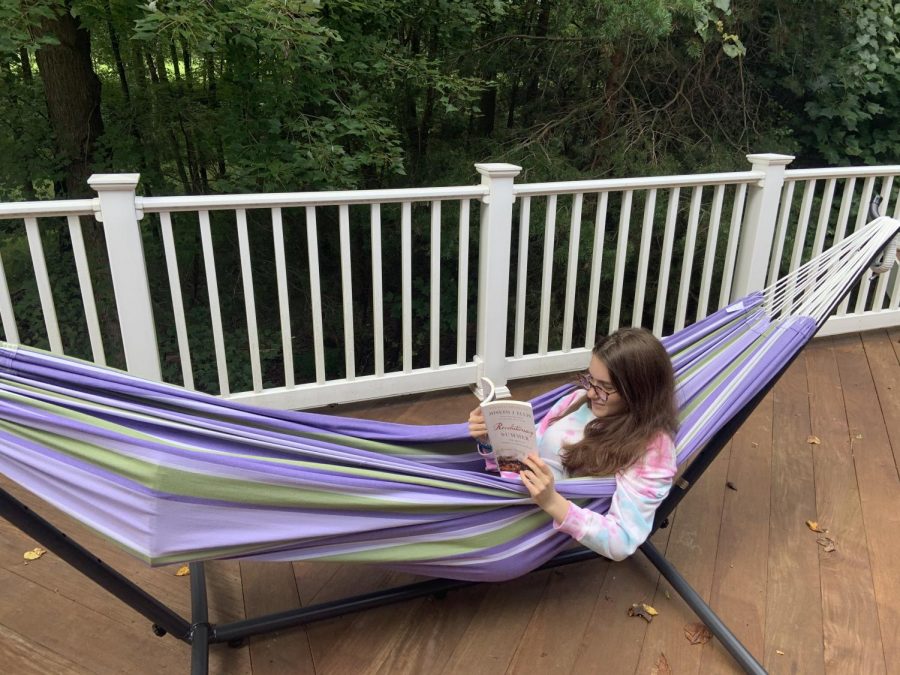Give summer reading books a chance
photo courtesy of Mira Beinart
Junior Mira Beinart reads her history summer reading book in a hammock.
September 4, 2020
Sure, summer reading can seem annoying to some. Homework over the summer is never an appealing idea, but the little effort it takes to read a book will actually benefit your participation and understanding of the course as a whole. Though reading one book can be quite helpful, too much summer reading is counterproductive.
According to English department chair Dr. Thomas Worden, all books are chosen intentionally in order to create a segway from summer into their studies for the year and to set a framework for the major themes of the course.
Based on their level, rising sophomores either read the dystopian novel “Brave New World” or “Never Let Me Go” over the summer, both of which perfectly prepares the students for what they should expect in their dystopian unit, the first unit of the school year.
While summer reading does enable teachers to give assignments early in the year, it’s important for the students to keep in mind that teachers try to give assignments of low point value, and in the long run, these assessments are to their benefit. The seemingly pointless strong paragraphs or reading checks teach students how their teachers grade and want them to analyze material.
Not only do the students benefit from summer reading, but summer reading allows teachers to assess the skill level of their new class relatively early in the course. Early assignments test students’ abilities so that the teacher knows where to focus the class both in terms of writing practice and reading comprehension, as well as an idea of the most pressing topics to review.
While I mostly support the way CESJDS assigns summer reading, I do not support the summer reading for history courses, which is assigned to rising sophomores and juniors taking advanced history. If the history department is allowed to assign summer reading, where does the school draw the line?
Unlike English, where assignments rely solely on literature, the material-heavy history curriculum can definitely still thrive at the beginning of the year without the extra primary source reading over the summer. These history books often require more thought, effort and time because they do not have characters or a plot. They are much harder to read and create resentment against summer reading as a whole.
In the future, I would love to see JDS remove the summer history book, but for now, for all the students who are opposed to summer reading, just remember, reading one book won’t kill you.








